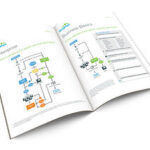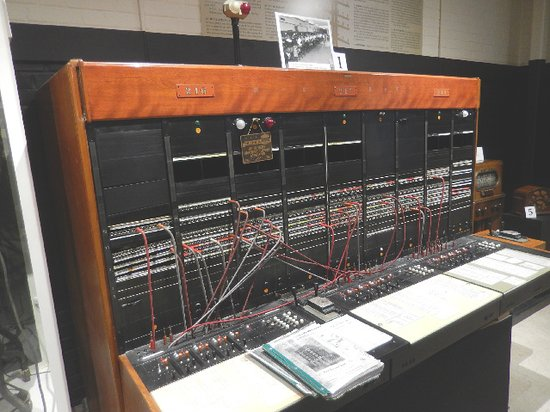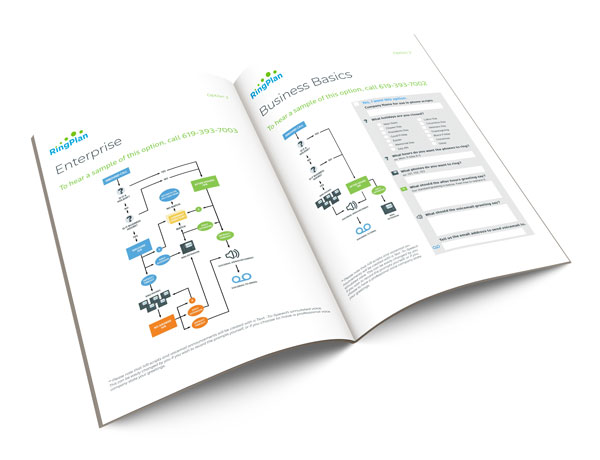Looking to switch phone providers and want to save time in the process? Start thinking about your dial plan and who will manage it.
Although organizations may share a lot in common, the way they manage the phone system and phone calls can vary drastically.
Regardless of company size or industry, most businesses that use telephones have a method of operation for answering calls and operating their phone lines. This sequence of allowable actions when managing an incoming call and routing it to its final destination is called a phone system’s dial plan.

In the old analog days, a small business dial plan consisted of a company-wide policy for what to say and do when you picked up an incoming call. The answering machine would do the rest.
This policy may have been good enough for most small businesses with someone always available to pick up the phone.
Larger businesses had to employ a small army of phone operators to manage switchboards, ashtrays and all.

Today, most modern businesses have discovered the benefits of working with a VoIP phone system in employing modern dial plans with an interactive voice responder (IVR) to automate the flow of traffic, and to reduce the overall cost of communication.
Interactive Voice Response is an Auto Attendant that assists in routing callers to the correct person or extension. It is the automated voice that greets callers and provides menu options to choose from.
The IVR takes the call and delivers it through your phone system to reach the final destination, a live person, or voicemail.
Designing a dial plan requires one to assess their business needs first. Different companies have different priorities. It is possible to have a business phone system that can reflect these priorities.
Small businesses may have simple needs that can be met with simple voicemail alone. These businesses can benefit from the most basic dial plans with no menu options.
Test The Basic Dial Plan Template

Some small businesses may select a simple and easy dial plan for aesthetics purposes. These small businesses rely on a professional presentation to nurture trust from their customers. A type of trust typically reserved for the bigger competitors
Test The Simple and Easy Template

Both small and larger organizations may prioritize efficiency and may choose to design their dial plan to first categorize callers to send them to the right place.
Larger companies typically need more features and more flexibility in their phone system; enterprise-grade features designed to help larger organizations, in multiple locations, with many employees, to function.
These organizations can benefit from an enterprise phone system and a dial plan designed to meet the needs of large, diverse teams. These dial plans may include various IVRs, directories, pre-qualifiers, and features that control how the system works on specified days such as weekends and holidays.
Test The Enterprise Dial Plan Template

Regardless of the size of business, today’s needs require more thought be put into your business needs of today, those for tomorrow, the needs of your customers. Additionally, a responsible business will want to choose the appropriate service provider to manage it all.
Who is Your Dial Plan For?
Perhaps just as important as outlining your business needs, you have to ask yourself ‘Who is this for?’
Is your phone system for your business? Well, yes, but it’s just as much for you as it is for your audience. That is, those calling you.
Have you thought about their experience when they call?
These individuals have specific needs. Your IVR can help meet these needs or can work towards meeting their needs as they progress through your menu system, on their way to reach their end point.
Consider their needs at the moment, are their needs urgent? You wouldn’t expect a restaurant to have the same type of dial plan as a hospital. Callers to a restaurant are more likely to call in an order or reservation than to call in for a life or death emergency.
People calling a hospital often have urgent needs, a dial plan can be designed to address these needs head-on.
You may recall the very first words you hear when calling a medical facility,
“If this is a life-threatening emergency, please hang up and dial 911.”
This message, first and foremost, addresses emergency calls and keeps people from wasting valuable seconds on the phone, lost in menu options.
Regardless of size, all organizations should be shooting for one goal, simplicity. Simplicity is what makes a dial plan efficient and keeps callers from experiencing frustration as they travel through your phone system.
From the beginning of a call, when a user enters your phone system, consider keeping top-level menus short to categorize your callers into streams. Think of the category of callers you get the most and the best way to move them through your phone system. Once separated, you can deliver a more-targeted message to each group.
Organize your phone system to keep users engaged. Remember this is an opportunity too. You have a captive audience, make sure they have a good experience during this important brand touchpoint.
Keeping things simple also helps users avoid getting lost in the system. A frustration that sometimes can only be resolved by hanging up and trying again.
Read the Top 7 Tips for a Great Interactive Voice Respondent (IVR), Download the Guide
Frustration during a call can be avoided by giving people an opportunity to reach a live operator.
Sometimes questions can only be answered by a living being. Be sure to give your users an opportunity to reach someone or leave a message.
If you are thinking about including an option to reach a live operator in your dial plan, be sure your business can handle the call traffic.
In busy times, it is considered acceptable to forward callers trying to reach an operator to voicemail. However, voicemail should be well maintained and an effort should be made to call back those who have left a message as quickly as possible.
If callers are simply looking for typical information, consider using your dial plan to deliver the information they are looking for.
By simply providing the information they need as they traverse your dial plan, you can greatly reduce the number of requests for a live operator.
Creating a dial plan does not have to be hard. Although all businesses are the same, one can get fairly far by familiarizing themselves with several dial plan templates.
Starting from a template can save time, regardless of how big an organization gets, it is unlikely to need a complex dial plan.
Simplicity is key when crafting your new dial plan.
Our templates include best-practice examples that includes a simple and easy dial plan template, a business basics dial plan template, and an enterprise dial plan template.
Download our dial plan templates and see which will work best with your organization or contact us at demos@ringplan.com to schedule time with a professional.
